Safety Tips for Travelers in Japan
Table of Contents
Japan is consistently ranked among the world’s safest countries for travelers. With one of the lowest crime rates globally and a strong culture of respect and order, it’s a destination that feels secure even for first-time visitors. However, no place is entirely risk-free, and understanding Japan’s unique safety dynamics, emergency preparedness, and cultural expectations can make any trip smoother.
This guide covers essential safety tips, practical advice, and reliable resources to ensure a safe and enjoyable journey through Japan.
Safety Culture in Japan
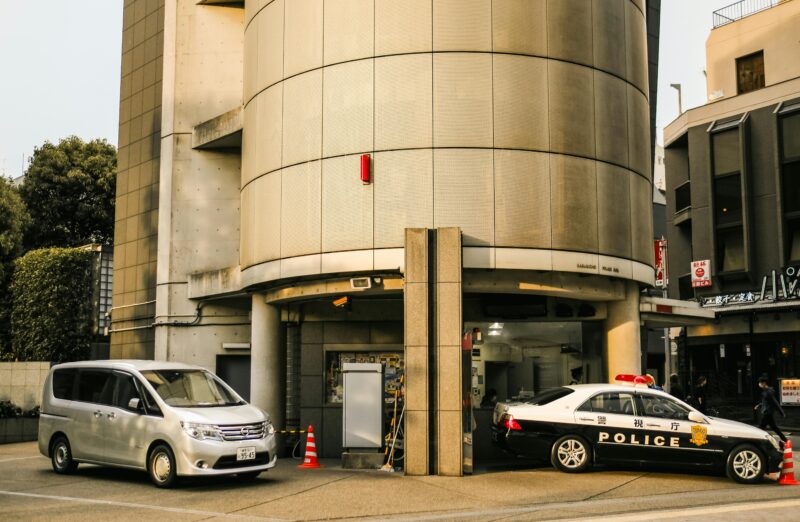
When you think about what makes Japan so safe, it’s more than just low crime rates. It’s the little things—like the way people respect each other, how public systems are designed to help, and even how clean everything is. Let’s break it down.
What Makes Japan So Safe?
Koban: Your Go-To Safety Net
Have you ever lost your wallet or phone while traveling? In Japan, there’s a good chance you’ll get it back. Thanks to koban, or neighborhood police boxes, lost items are often turned in, and officers are there to help.
- Tokyo alone has over 1,200 koban according to Tokyo Metropolitan Police, so you’re never far from one if you need assistance. Whether it’s directions, reporting something, or even finding a nearby restroom, koban officers are approachable and used to helping tourists.
- Here’s something amazing: Over 75% of lost items are returned to their owners. That includes wallets, phones, even umbrellas. It’s all part of a culture where honesty and trust are the norm.
If you’re worried about safety or lose something important, head to the nearest koban. They’re easy to spot, and the officers are usually friendly—even if you don’t speak Japanese.
Cultural Norms That Make You Feel Secure
Now, let’s talk about how people’s behavior in Japan helps create that sense of safety. When was the last time you were on a quiet train, even during rush hour? In Japan, it’s the norm.
- People don’t talk loudly on public transport or blast music, which means even the busiest places feel calm and orderly.
- Respect for personal space is a big deal here. Even in crowded spots like Shibuya Crossing, people are careful not to bump into each other.
- Then there’s the cleanliness. Streets, parks, and public spaces are spotless, and that makes everything feel more welcoming – and yes, safer too.
When everyone around you follows these unspoken rules of respect and order, you start to feel it too. You relax, knowing things won’t get chaotic or unpredictable.
Tip: Save the location of nearby koban on your phone, especially around your accommodation or major attractions. A simple phrase like “Koban wa doko desu ka?” (Where is the koban?) can be handy if you need help.
Crime Trends in Japan
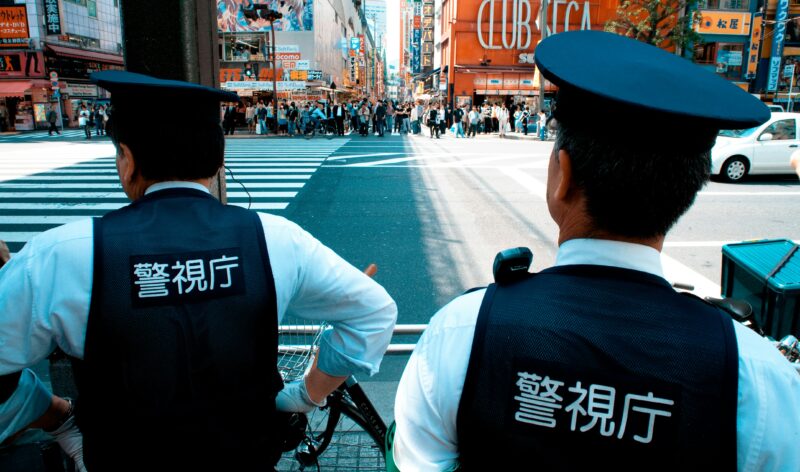
When you hear about Japan, the words “safe” and “secure” probably come to mind—and for good reason. Japan consistently ranks as one of the safest countries in the world. But like any place, it’s not perfect. There’s been some chatter recently about crime rates ticking up, so let’s break it down to see what’s really going on and what it means for you as a traveler.
Is Crime Increasing in Japan?
The short answer? Technically, yes – but don’t panic. The numbers need a bit of context.
- Homicides Are Rare: In 2020, Japan recorded just 0.2 homicides per 100,000 people. Compare that to 5.3 in the United States, and you can see why Japan still feels incredibly safe.
- Robberies Are Almost Nonexistent: The robbery rate is 1.2 per 100,000 people, while countries like France (43.8) and Germany (43.2) report significantly higher rates.
- What’s Changing: During the pandemic, crime in Japan hit record lows. Fewer people were out and about, so there were fewer opportunities for things like theft or street crimes. Now that life is returning to normal, these numbers have edged up, but they’re still well below global averages.
While these incidents are uncommon, it’s always good to stay aware. A little vigilance goes a long way in ensuring your trip stays hassle-free.
Natural Disaster Preparedness
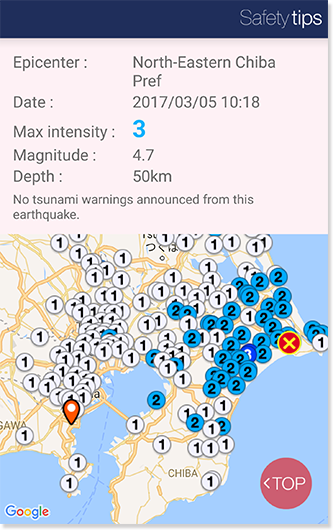
Japan is stunningly beautiful, but it’s also a country that sits along the Pacific “Ring of Fire,” which means earthquakes, typhoons, and even the occasional tsunami are part of life here. The good news? Japan is one of the best-prepared countries in the world when it comes to natural disasters. If you know what to expect and how to respond, you’ll feel confident navigating these situations if they come up.
Earthquakes: A Part of Everyday Life
If you’re in Japan long enough, you’re likely to experience a small earthquake – most are barely noticeable. Japan has over 1,500 earthquakes every year, but most of them are minor. That said, knowing how to stay safe during a bigger quake is essential.
- Buildings Are Built to Withstand Tremors: Most modern buildings in Japan are constructed with advanced earthquake-resistant technology, which is why they sway instead of crack during a quake.
- What to Do During a Quake:
- Stay calm.
- Take cover under sturdy furniture, like a table or desk, to protect yourself from falling objects.
- Avoid windows or anything that could shatter or tip over.
- If you’re outside, move away from buildings, trees, or power lines.
Hotels in Japan are required to provide emergency instructions, often in multiple languages. Take a moment to review the evacuation routes when you check in.
Typhoons: Timing Matters
If you’re visiting between August and October, you’ll be in Japan’s typhoon season. Typhoons can bring heavy rain, strong winds, and occasional flooding, especially in coastal areas.
- How to Stay Updated: The Japan Meteorological Agency provides real-time weather updates, and most Japanese news apps have English versions.
- Safety Precautions:
- Avoid coastal areas or outdoor activities if a typhoon warning is issued.
- Stay indoors and stock up on essentials like snacks and bottled water if severe weather is expected.
Essential Tools for Natural Disasters
Japan takes disaster preparedness seriously, and there are some great Japanese apps to keep you informed and safe:
- Yurekuru Call: This app provides real-time earthquake alerts based on your location. It’s one of the most popular tools among locals and travelers alike.
- Safety Tips: Offered by the government, this app gives multilingual updates on everything from earthquakes to typhoons.
Practical Tips to Stay Ready
- Always carry a portable phone charger. During power outages, having a fully charged phone can make all the difference.
- Keep a small amount of cash on you. Power outages can also knock out ATMs and card payment systems.
- If you’re staying in a hotel, ask the staff about their emergency plans—they’re trained to handle these situations and can guide you.
While earthquakes and typhoons may sound intimidating, Japan’s infrastructure and preparedness make these events far less stressful than you’d expect. With the right apps and a little planning, you’ll feel confident and safe no matter what nature throws your way.
Public Spaces and Common Scams
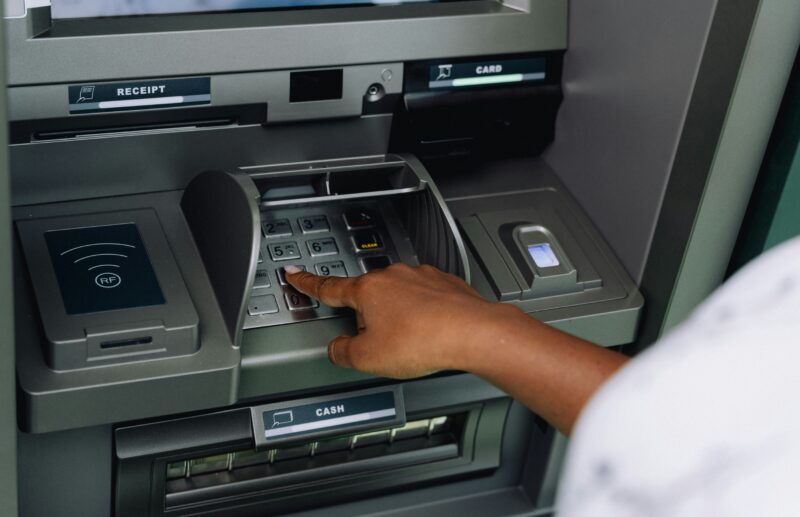
One of the things you’ll quickly notice in Japan is how safe and calm public spaces feel. Streets are clean, people are respectful, and there’s an unspoken order that makes even crowded areas manageable. That said, no place is completely free of risk, and it’s good to know what to watch for – especially as a tourist.
Navigating Crowded Areas
Japan is home to some of the busiest public spaces in the world, like Shinjuku Station, which sees over 3.6 million passengers daily (JR East). While these areas are incredibly organized, crowded spots can be overwhelming if you’re not used to them.
- Keeping Your Belongings Secure:
- Use a crossbody bag or backpack with zippers and keep it in front of you in crowded places.
- Avoid putting wallets or phones in back pockets, especially in busy train stations or popular tourist spots like Akihabara.
- Pickpocketing Isn’t Common, But…: While rare, pickpocketing can happen in high-traffic areas. Staying mindful of your belongings will keep you covered.
Common Tourist Scams
Japan is known for being incredibly honest, but like anywhere, there are a few scams that target visitors. Here’s what to watch for:
- Bar Scams: In nightlife districts like Roppongi (Tokyo) or Namba (Osaka), some bars cater to unsuspecting tourists by inflating bills or adding hidden charges.
- How to Avoid: Before ordering, confirm prices and check reviews online. Sticking to places with strong ratings on platforms like Google Maps or TripAdvisor can help.
- Fake Monks Asking for Donations: If someone dressed as a monk approaches you near a busy temple, asking for a donation, it’s best to decline. Genuine monks in Japan don’t solicit money from the public this way.
- Pro Tip: A polite “No, thank you” (or even just shaking your head) is enough to handle this situation.
- Credit Card Skimming: While not widespread, credit card skimming has been reported in smaller, less-regulated businesses.
- How to Avoid: Use cash at smaller establishments, especially bars or souvenir shops that look unofficial.
ATMs and Currency Tips
One thing Japan gets right is convenience stores like 7-Eleven, Lawson, and FamilyMart. Not only can you grab a snack, but their ATMs are some of the safest and most reliable places to withdraw cash.
- Why Use Convenience Store ATMs?
- They’re monitored and secure, even in late hours.
- Most of them accept foreign cards and have English-language options.
- Cash is King: Japan is still very much a cash-based society, especially in smaller towns or mom-and-pop restaurants. Having some yen on hand can save you from hassle.
Japan’s public spaces feel safe because they are, but it’s always a good idea to stay alert and take basic precautions. Stick to reputable places, keep your belongings secure, and you’ll be able to focus on soaking in the sights and sounds of this incredible country.
Tip: When in doubt, check reviews before visiting a restaurant, bar, or shop. A quick search online can help you avoid potential scams and point you toward better options.
Food and Health Safety
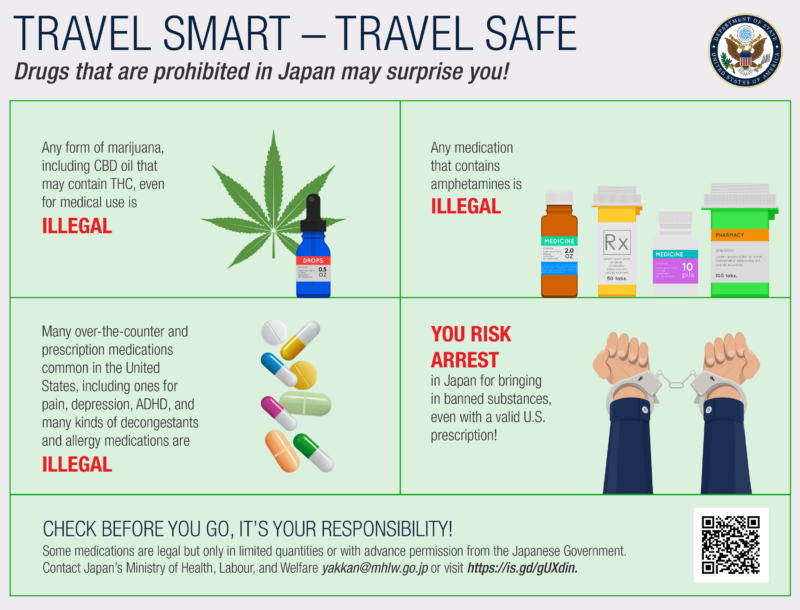
One of the best things about visiting Japan is the food – whether it’s sushi in a tiny alleyway restaurant, steaming bowls of ramen, or perfectly grilled yakitori at a lively izakaya. Japan’s high food safety standards mean you can enjoy it all with confidence. However, if you have specific dietary needs or are traveling with medication, a little preparation will go a long way.
Food Safety: Why Japan Sets the Standard
Japan consistently ranks among the top countries for food safety, thanks to strict hygiene regulations and high standards in the restaurant industry.
- Hygiene Everywhere: From street food vendors to Michelin-starred restaurants, cleanliness is taken seriously. Workers often wear gloves and masks, and kitchens are spotless.
- Safe Tap Water: You don’t need to buy bottled water here—tap water is safe to drink throughout the country.
If you’re an adventurous eater, Japan is a dream destination. Even sushi and raw seafood are incredibly safe because of the care taken during handling and preparation.
Tip: If you’re heading to a fish market or local eatery, look for spots with a steady stream of customers – this is usually a good sign of freshness and quality.
Managing Food Allergies and Dietary Restrictions
If you have food allergies or specific dietary needs, navigating menus in Japan can feel a bit tricky. Soy sauce, seafood, and gluten are common ingredients in many dishes, even when they don’t seem obvious.
- Allergy Cards: One of the best ways to communicate your needs is by using a Japanese allergy card. You can download printable versions online or use an app like Google Translate to create a clear explanation in Japanese.
- Vegan and Vegetarian Options: While traditional Japanese cuisine is heavily meat and fish-based, vegan and vegetarian options are growing in popularity. Apps like HappyCow can help you find plant-based restaurants in major cities.
Tip: If you have severe allergies, be cautious of foods like tempura or miso soup, as they may contain hidden allergens like seafood-based broth or wheat flour.
Medication Rules in Japan
Traveling with medication? Japan has some of the strictest rules about what you can bring into the country. Certain over-the-counter drugs that are common elsewhere – like pseudoephedrine (found in cold medicines like Sudafed) – are restricted.
- Prescription Medications: If you’re bringing prescription medicine, you’ll need a doctor’s note and may need to apply for a Yakkan Shoumei (import certificate) for certain drugs. Check Japan’s Ministry of Health for details on what’s allowed.
- Alternatives: Japan has a robust selection of pharmacies where you can find local versions of many medicines. Pharmacists are trained and usually willing to help.
Tip: Pack essential medications in your carry-on with clear labels, and always bring a copy of your prescription in case you’re asked about it at customs.
Staying Healthy While Traveling
Between the excitement of sightseeing and the incredible food, it’s easy to overdo it. Here are a few simple ways to stay healthy during your trip:
- Hydration: Keep a refillable water bottle with you. Public fountains and tap water are safe, so you can avoid buying single-use bottles.
- Convenience Stores Are Your Friend: Stores like 7-Eleven and Lawson sell everything from fresh fruit to pre-packaged meals, making it easy to grab something healthy on the go.
- Travel Insurance: While Japan has excellent healthcare, it’s not cheap for visitors. Make sure your travel insurance covers medical emergencies, just in case.
Japan makes it easy to eat well and stay healthy, whether you’re trying every local delicacy or managing a specific dietary restriction. With a little planning, you can fully enjoy the culinary delights and keep your trip running smoothly.
Tip: For a complete guide on medication rules and allergy management in Japan, check out Japan National Tourism Organization’s health resources.
Transportation and Emergency Preparedness
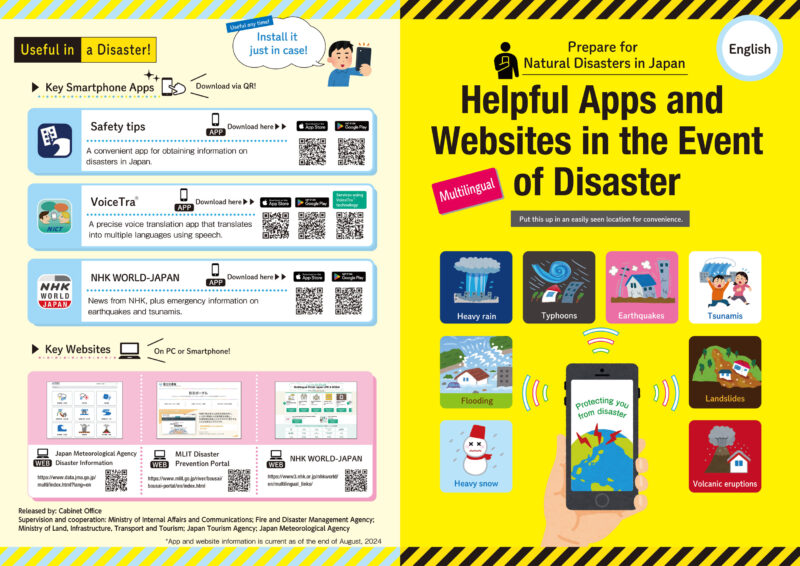
Emergency Numbers and What to Do in a Crisis
Japan is one of the safest places to visit, but emergencies can happen anywhere. Knowing the key numbers and how to react will give you peace of mind.
- Emergency Numbers:
- 110: Police for crimes, lost items, or suspicious activity.
- 119: Fire and ambulance services for medical emergencies.
- Nearby Koban: If it’s a non-emergency but you need help, head to a koban (police box). Officers are trained to assist with lost property, directions, and general inquiries.
Preparing for Medical Emergencies
Japan has an excellent healthcare system, but it’s not free for tourists. Here’s what to keep in mind:
- Carry your travel insurance details with you at all times.
- Many hospitals and clinics accept tourists but may require upfront payment. Japan’s National Tourism Organization provides a list of English-speaking clinics and hospitals.
Tip: Save your hotel’s address in Japanese on your phone and bookmark nearby hospitals or clinics for quick access.
Final Thoughts
Japan is one of the safest and most welcoming countries in the world, making it an ideal destination for travelers. By staying informed about local systems like koban, being prepared for natural disasters, and knowing how to navigate public spaces, you can explore with confidence and peace of mind.
Whether it’s your first trip or your tenth, Japan’s combination of safety, culture, and incredible experiences never disappoints.
| For a comprehensive guide to planning your trip, start with our Japan Travel Tips. |
Looking for a tour agency to help with your planning?
Contact Firefly Japan to book a private luxury tour in Tokyo & Kanto


